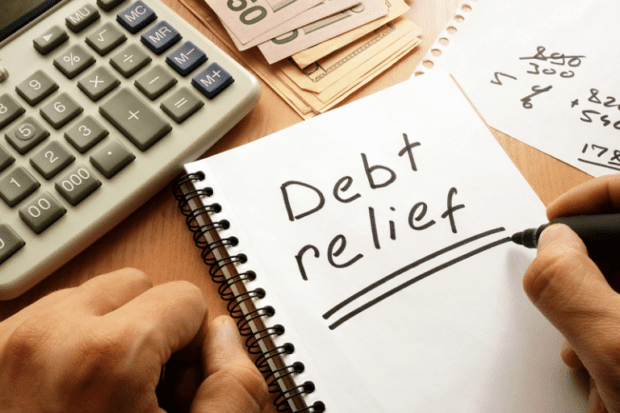Three Common Debt Relief Questions Revisited

Although thousands of Americans navigate debt relief plans each year, ample myths and misunderstandings about the process abound. Here, we revisit three frequently-asked questions about debt relief to dispel confusion, sharpen your understanding, and provide some guidance to those who are considering embarking on a debt relief plan.
Question #1. Will the debt settlement process impact my credit score? If so, how?
If you find yourself saddled with unmanageable debt, debt settlement is one path you can take to become debt-free. During this process, you stop paying your credit card bills in order to build up an escrow payment account. Your team at your debt relief company of choice will negotiate with your creditors to choose a settlement amount that is lower than the outstanding debt balance.
The downside to this process is the fact that you will have stopped paying your credit card bills, which will hurt your credit. Missing one payment hurts your credit; missing many hurts it more, as does a charge-off, which can remain on your credit report for up to seven years (a charge-off occurs when a credit card account has not made the minimum payment for a period of 180 days).
If you enroll in a debt settlement program, your accounts will be settled and, instead of being reported as “charged-off,” those settled accounts will be reported as “settled” on your credit report. While still considered a negative mark, future creditors generally view settled accounts more favorably than charged-off ones.
This begs the question: is debt settlement even worth it? While that’s an individual choice and something to discuss with your debt settlement team, if getting out of debt is important to you, a settlement program could help you resolve your debt faster. If you then engage in good credit behavior (e.g., low utilization, making on-time payments, and paying your balance off in full every month) you can slowly rebuild your credit over time.
Question #2. Do I have to hire a debt settlement company to settle my debt?
Most people want to know whether they can settle their debts with their creditors on their own or if they should hire a debt settlement company to assist. While you can absolutely navigate the process of negotiating with your creditors on your own, there are many advantages to hiring a debt settlement company to work on your behalf. Some of the key reasons include the fact that debt settlement companies:
- negotiate with creditors daily;
- Maintain relationships with these creditors and collection agencies;
- know from past experience what settlement amount creditors are likely to accept and what the specific terms they will demand; and
- are familiar to creditors, too – creditors know what to expect when they negotiate with a debt settlement company, so it is often seen as a more reliable form of settlement than if they have to deal with an individual.
Question #3. What’s the difference between consolidation and settlement, anyway?
The concepts are often conflated, but debt consolidation and debt settlement are two entirely different forms of debt relief. Both might be options for you to consider if you are seeking debt relief, so it is beneficial to know the difference between the two.
With debt consolidation (or credit card consolidation), a consumer works with a debt relief company to obtain a debt consolidation loan from a financial institution. The purpose of the loan is to use that money to pay off the consumer’s debts and consolidate what is owed into one payment.
Consolidation loans can be a useful way to reduce your debt, as they consolidate all of your debts into one monthly payment (the payment on the loan balance) and reduce the amount of interest paid monthly. This, in turn, accelerates your repayment process.
Debt settlement is very different: A consumer works with a debt relief company (or on his or her own) to negotiate a lower total payment, or settlement, with creditors. The customer stops making payments on the debt and instead directs all financial resources towards building up an escrow payment account, which will be used to make the settlement payment.
Whichever path you choose to take, a reputable debt relief company can help you in the process of securing a loan or working with creditors to reach a settlement and free you of your financial burden.




